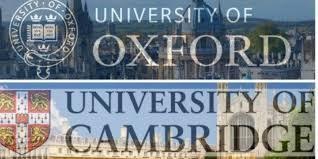
7 minute read
THE PERSONAL STATEMENT
This section is crucial because it is the only part of the application where you have a chance to select and emphasise specific points about yourself; it is your opportunity to sell yourself. Clearly your academic potential and grades are crucial, and an academic focus should typically constitute the vast majority of the statement, but your wider experiences are also important.
You will spend time in May and June attending lectures and workshops that should help you to write your personal statement. In the meantime, however, here is some general information and advice:
How do Admissions Tutors use the Personal Statement?
• To help them select candidates. • To assess whether the candidate understands the nature of the course. • To ascertain the level of interest that the candidate has in the course. • To help decide between borderline candidates. • To help them decide which candidates to interview • To give interviewers options for questions.
What information should be included in the Personal Statement?
• Reasons you wish to undertake the course, especially for ‘new’ subjects. The course may also link to your chosen career. • How your interest in the subject has developed (but not using an exaggerated and clichéd phrase such as, “I have been passionate about studying …... since the age of 5 when…”). • Your academic suitability for the course and reference to relevant academic assignments undertaken. • The reasons for your chosen A Levels and how they may contribute towards preparing you for university study in general, and this course in particular. • The level of interest you have in the course & the wider reading which you have undertaken. • Your wider interests and extra-curricular activities including: sports, drama, music, Duke of Edinburgh Award, debating etc. and how these are relevant to your chosen course/university study. • Details of relevant work experience; particularly when the course is vocational. • Evidence of your personal qualities and skills (e.g. teamwork, leadership, IT, communication). • Your positions of responsibility (e.g. team captain, prefect). • Examples demonstrating your willingness to work hard and persevere with tasks.
Universities are also very keen to see accurate, well-structured, well-planned statements, displaying good use of English.
What should you avoid on your Personal Statement?
• Don’t be tempted to download one from the internet or use whole phrases from someone else’s – this must be your own work. UCAS now uses sophisticated plagiarism software to detect personal statements that have been downloaded from the internet or copied from previous submissions; if you are caught, then your application may become void. • Don’t waffle. • Don’t refer to your qualities and skills without giving examples. • Don’t start every paragraph with ‘I’. • Don’t make mistakes; proof-read carefully and re-draft several times. • Don’t refer to work experience without explaining the insights gained from it. • Don’t make out that you are Superman/woman. • Don’t say that your main interests include ‘going to the pub’ and ‘listening to Gangsta rap!’
How should you structure your Personal Statement?
The first task will be to read any entry profiles provided for each course at each institution, if these are available. These may include information regarding what the admissions tutors are looking for; exploring www.ucas.com/students/coursesearch is a good place to start. Students will be given clear guidance in May and June about how to structure an effective personal statement.
An example from Bristol University, for their History course, is given below with relevant targets highlighted:
“We look to see that the personal statement has evidence of high levels of interest in, and commitment to, the study of history, and check that your interest in history extends beyond the syllabus (if you are currently studying history), and that you have read widely within the subject of history and that you have critically engaged with that reading. We are also interested to hear about any relevant experience of the practice of history, e.g., museum work, or an independent research project. We want to see that your personal statement demonstrates coherent, analytical and critical thinking. Credit is given for wellconstructed and accurately expressed argument. We may also take into account competence in a foreign language or an understanding of how other relevant disciplines can inform the study of history.
Once you have read the relevant information, make a list of the key characteristics and skills that your five chosen institutions wish to see in applicants and make sure that you address these in your statement. It is important to divide your statement into coherent paragraphs and you should aim to fill most of the page. Outlined below is a broad guideline, although there is no definitive structure which one should follow:
Paragraph 1
• This is the most important section. • State why you have chosen the course and your academic suitability to it. • Explain (if appropriate) how it may link to your chosen career and you may include relevant work experience here. • Give examples of the specific topics you have enjoyed, the presentations you have made, the research that you have undertaken, the field trips you have embarked upon, the books you have read, the links to your chosen career; stating such evidence is very important.
e.g.
“I have always been fascinated by the past, beginning with childhood interests in time-travel and mythology. At school, I have been particularly enthused by my History lessons and by the scope and variety of the subject matter taught. This interest has been developed with student exchanges to France and History field trips to Germany and Eastern Europe. Such opportunities have encouraged me to undertake an in-depth study in 18th century French social history and I have also pursued some independent research into 20th century European dictators. Books like Hitler’s Willing Executioners by Daniel Goldhagen and the comparative study of Hitler and Stalin by Alan Bullock have extended my knowledge and understanding of the subject, as has my active membership of the History Society throughout my time in the Sixth Form. All in all, my commitment to History as well as my genuine skills in the subject have confirmed for me that I am suited to a degree course in History at university.”
Paragraph 2
• Outline your wider academic skills and refer to your other subjects (equally, you may include work experience here). • Bring out your wider interests that have academic value and links.
e.g.
“My interest in languages has been developed through my passion for travel. Trips abroad to places like Spain, France and India have also broadened my perspective on life and have exposed me to a breadth of different cultures and traditions. In addition, I enjoy visits to the theatre both to the West End and to smaller theatre companies either English or French speaking. I hope to extend these cultural interests during the year abroad of my languages degree.”
Paragraph 3
• Set out your areas of responsibility at school and in the wider community. • Include your wider interests and commitments e.g. library duty, social events organiser, voluntary work, junior sports coaching, supporting Preparatory School pupils. • Avoid simply creating a list (you may have to leave out some), and endeavour to touch upon the qualities you displayed with, or skills which were enhanced by, such responsibilities or commitments.
e.g.
“Being nominated as a Student Council representative in the Sixth Form provided me with the opportunity to represent others in a responsible and fair manner. I had to extend my communication skills by speaking and listening in a large group. This experience should equip me to communicate effectively in an academic environment whilst at university. In addition, I have been involved in a number of drama productions as a technical assistant, working well as part of a team and realising the importance of meeting deadlines. Further responsibility has been gained as a member of the charity committee that helped run the school’s non-uniform days and raise funds for the poppy appeal and CAFOD. I intend continuing with similar cultural and social activities during my time at university.”
Paragraph 4
• Stress your particular skills: computer literacy, languages, communication, working to deadlines, problem solving, using initiative, working independently etc.
e.g.
“Work experience as a clerical assistant in a busy office enabled me to develop a number of important skills. Working in a small team ensured that I was able to listen carefully to others and work co-operatively with a variety of different people. In addition, I often had the opportunity to work independently which allowed me to use my own initiative. Such skills will no doubt prove useful during my undergraduate degree.”
Paragraph 5
• Your concluding remarks and observations.
e.g.
“The combination of my A Levels and extra-curricular activities has made me a self-motivated, determined individual with diverse interests. I now feel prepared to take on the challenges and take advantage of all that university life has to offer.”
Your Personal Statement should
• Show that you have skills suited to university life and that you will benefit from it. • Show that you are an interesting personality with a passion for the chosen course. • Be approximately 600 words long (4,000 characters including spaces), 47 lines long and must fit in the relevant box. • Be checked by subject staff. • Be drafted, re-drafted and re-drafted until you get it right! • Not be plagiarised universities will check all personal statements for plagiarism.








